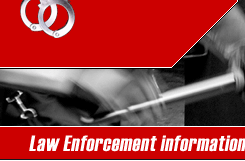Nonetheless it's a popular term used by personal injury solicitors. There are advertisements all over the place, online and offline by solicitors and claim management companies. "If you lose, we won't charge you a penny" and many of the likes. But do you understand what it means.A solicitor will mention he or she will work on a no win no fee basis.
In an instant you'll think, 'if the solicitor loses, I don't pay anything', which is correct. But what happens if the solicitor wins?.That's right, there's a fee to pay. Not many people grasp this.
they only think if they lose they don't need to pay. Majority of people think it's a free service. It's true.
to a certain extent.If the solicitor wins and you receive your final settlement, have they ever happen to mention, 'by the way I've won your case, my fees are £XXXX!' They've won, haven't they and you've received your cheque, but what about the fees?.What happens behind the scenes..
This is what happens but I must point out it doesn't apply to all solicitor firms. It all in the paperwork, some refer to it as the 'small print'. When a client wins, the fees are received from the 3rd party, who you are claiming against. But there are conditional clauses where you might even have to pay for their fees additionally if they are not recovered. Solicitors don't work for free, they also have a family to feed and a legal firm to run.So what's the catch? .
Solicitors have a CFA (conditional fee agreement), which states obligations to be carried out by both yourself and the solicitor. There are also other agreements such as insurance policies, medical consent forms, authority forms and loan agreements.Your final settlement cheque depends on what forms you sign. So before you go ahead and start signing papers with any solicitor firm, ask them specific questions.
? Will I get 100% of my compensation? .? Will you charge me any fees, if so, why and how? .? What's a Conditional Fee Agreement for? .
? Why is there an insurance policy for my claim and will it be deducted from my settlement cheque? .? Why do I need sign a loan agreement? .These are 'power' questions you need to ask to be on the safe side rather than questions like:.? How much will I get in compensation? .? How long will my case take?.
? Is there any way to speed up the process so that I can get the settlement cheque quicker? .These are NOT questions in terms of the solicitor helping you. These are money related questions and not really helpful in the initial stages of a personal injury case.
It's true that the final result is about the money, but not at this moment.By asking 'power' questions, it won't have a burden on you once your claim is settled. Communicating with the 'right' no win no fee solicitor helps tremendously especially if you want the maximum final results. They are working with you, not against you. So get these issues out of the way before you sign any papers or you could end up in shock!.
.It's easy to claim compensation without receiving any final moments of 'shock'. It's a new era in no win no fee claims; ask power questions and you'll be laughing to the bank.By: Mohammad Latif


